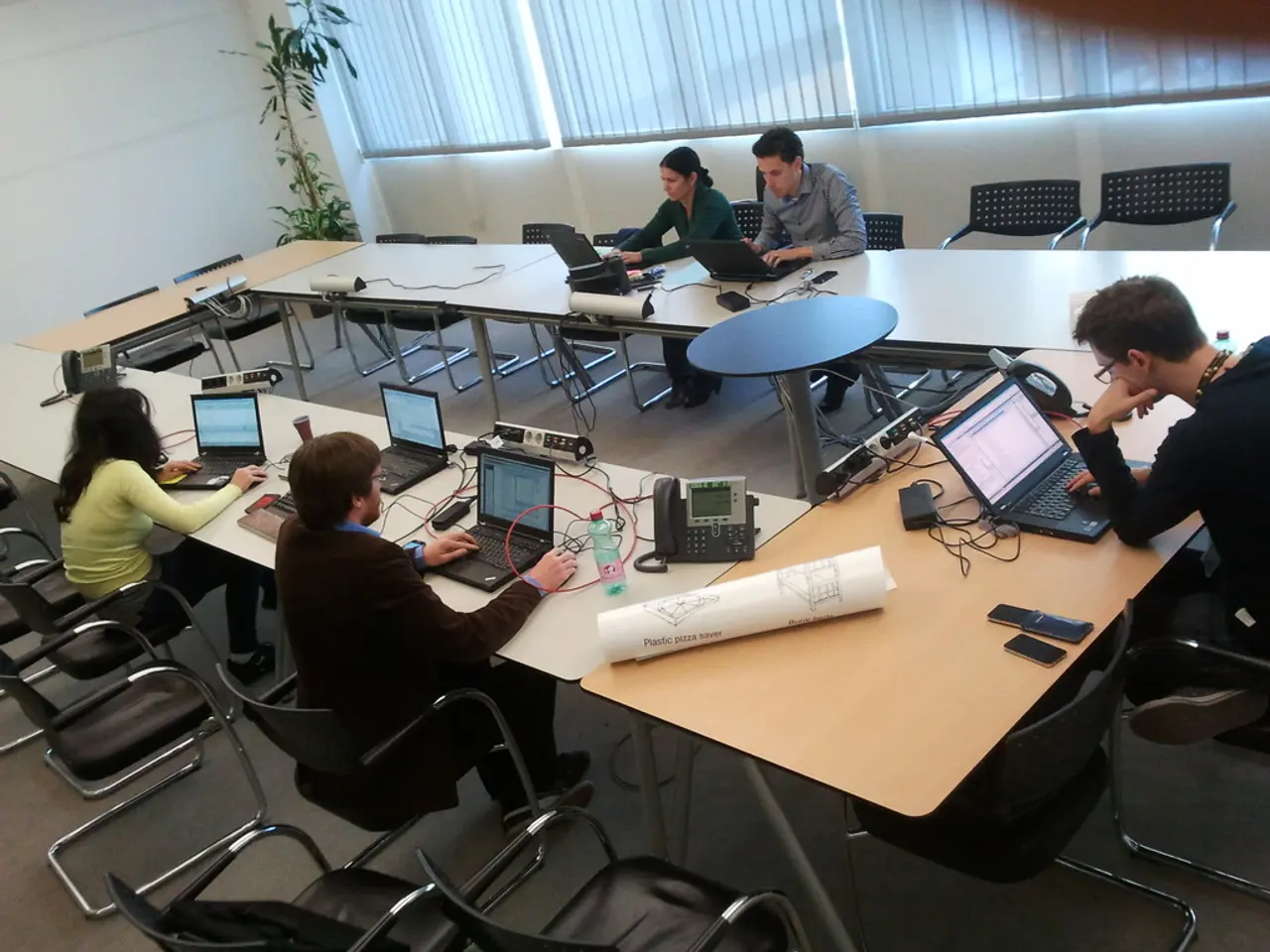In Writing, Work-from-Home Seems Flexible; Real-world Scenarios Paint a More Complex Picture
In the rapidly evolving world of remote work, India is navigating a unique landscape, seeking to harness the advantages of flexibility and efficiency while safeguarding worker welfare. A recent study by IIM-Bangalore has highlighted a 41% prevalence of burnout among full-remote tech staff in India, underscoring the need for policy intervention.
Amidst this context, key policy frameworks are being proposed to strike a balance between productivity and employee rights, mental health, and work-life balance. Regulation of working hours and overtime is a central focus, with Indian labor laws capping daily work hours at 9 and weekly hours at 48, mandating breaks, holidays, and overtime compensation. These limits apply equally to remote work setups to ensure fair conditions.
Beyond working hours, proposed frameworks emphasise employee privacy and rights during non-working hours. Laws are being contemplated to strictly define employees' rights, prohibiting mandatory work-related tasks after hours to protect rest and personal time. This includes establishing supervisory mechanisms and regulatory bodies to monitor compliance and enforce such rules.
Recognising the stress and burnout associated with remote work, policies advocate for mental health and support services. Employee assistance programmes, such as psychological counseling hotlines and mental health services, are being proposed to alleviate work-related anxiety and provide support to affected workers.
Skill development and productivity management are also integral components of these frameworks. Some Indian companies are adopting policies requiring employees to spend dedicated hours on upskilling through learning platforms, ensuring continuous professional development while working remotely. However, there is also a trend toward closely monitoring remote working hours to balance productivity and work-life integration.
Legal definitions and protections for different worker categories are another critical aspect. Indian labor laws distinguish between ‘workmen’ and ‘non-workmen’, with varying degrees of protection. Proposed policies suggest extending occupational health and safety benefits to gig and platform workers, who form a significant part of the remote workforce.
The debate surrounding mandatory physical presence versus flexible work models is another significant aspect. While some companies enforce mandatory office presence to improve oversight, there is a growing consensus around flexible or hybrid models that can maximise employee satisfaction without compromising organisational goals.
In the Indian context, the remote-work revolution presents a dual nature, serving as a tool of empowerment and a source of new vulnerabilities. The government's role in legislating, supervising, and providing support services is central to these policy proposals.
Globally, the remote work model stands at approximately 1.27 days per worker per week, significantly lower than the ideal 2.6 days. In response, the European Union is drafting a Directive under social-partner negotiation regarding remote work. Notably, countries like Belgium and Portugal have enshrined laws to protect workers' rights, such as the 'duty of absence' in Belgium and the prohibition of employer contact after hours in Portugal, with penalties up to €9,600.
India, with 943 million broadband users as of April 2025, has made significant strides in digital connectivity, albeit with rural wireline density remaining less than 5%. The Female Labor Force Participation Rate (LFPR) in India rose to 41.7% (PLFS 2023-24), but 3/4 of Indian women cite caregiving as the primary reason for demanding flexible work options.
In conclusion, India's approach to remote work is multidimensional, aiming to harness the benefits of remote work while institutionalising protections for employee welfare, mental health, and legal rights within the Indian socio-legal landscape. The government's role in legislating, supervising, and providing support services is central to these policy proposals.
Geography plays a crucial role in India's remote work landscape, with its vast digital network of 943 million broadband users proven by the 2025 statistics.
In the realm of technology, regulatory bodies are considering implementing laws to protect employee rights and privacy during non-working hours, mirroring the enshrined laws in countries like Belgium and Portugal.




